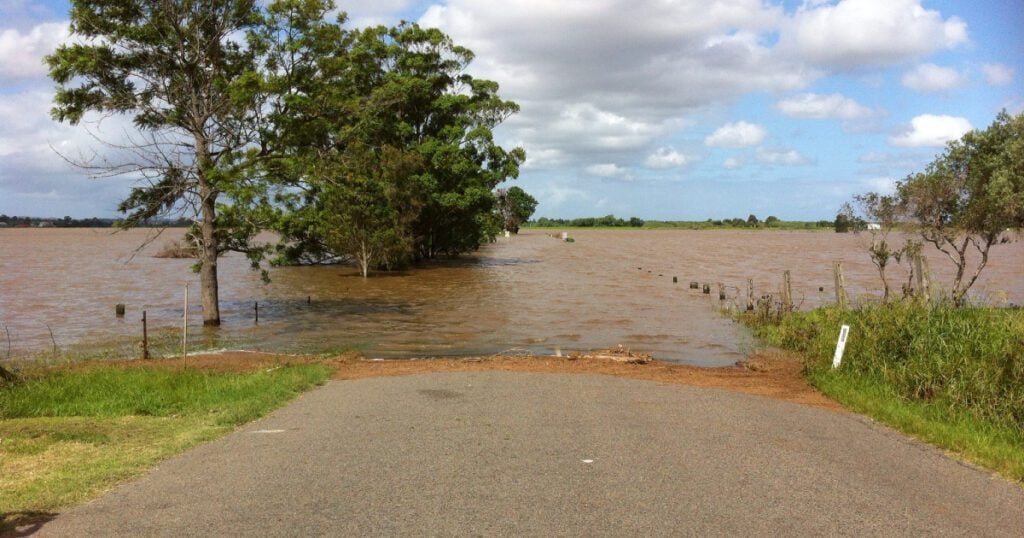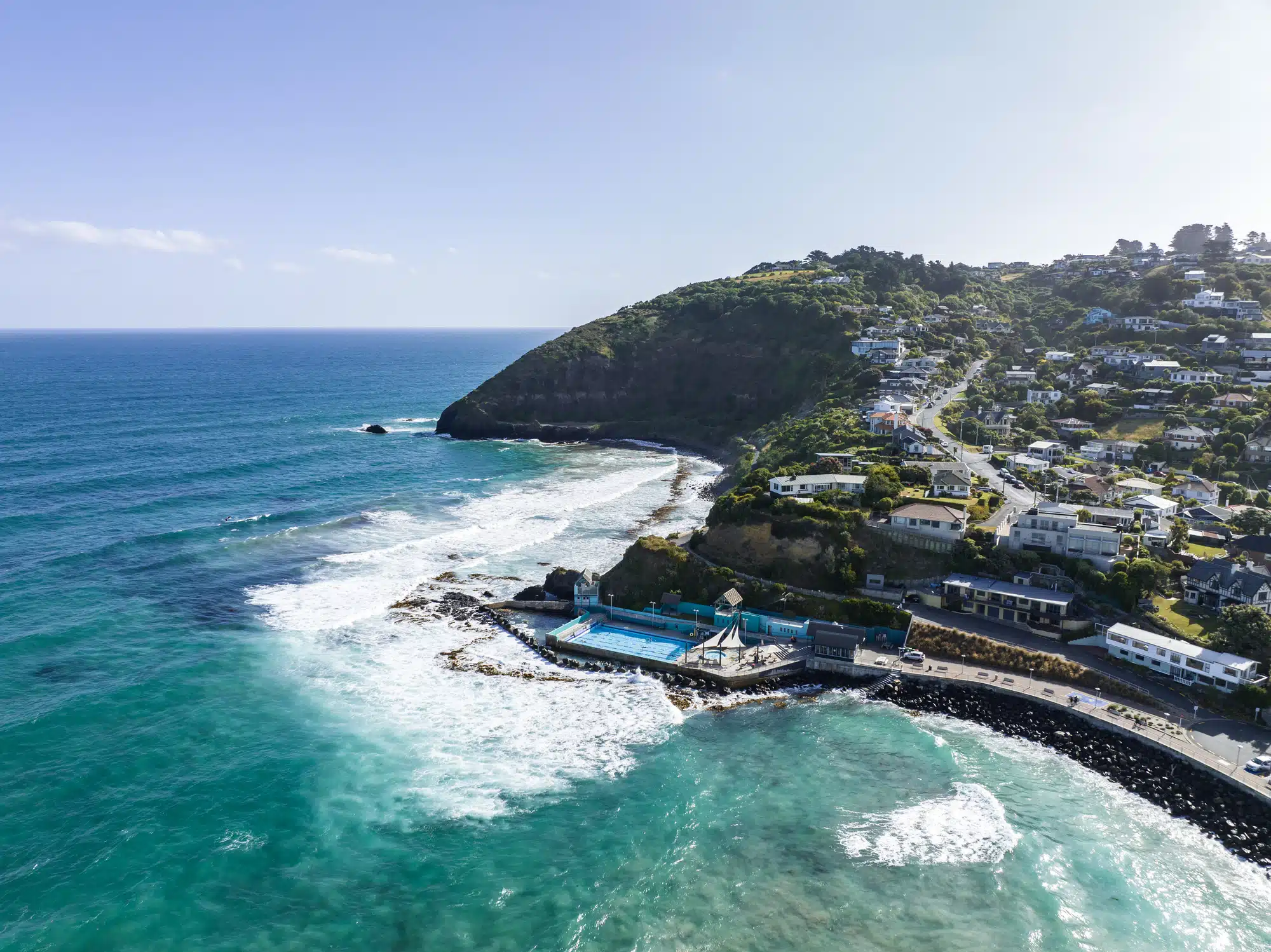How tax pooling can help your tax management
Meet Andy, a builder who has run his own business for three years. Things are going well, and he’s set to make a substantial profit in the current financial year. He’s well-paid and smart enough to set aside tax he owes with each payment. But clients don’t always pay him on time, causing some serious headaches.
Like many businesses, Andy experiences cashflow issues. He makes a profit but doesn’t always have enough funds in his account to pay provisional tax when it’s due.
What should Andy do? Grin and bear the Inland Revenue’s late payment penalties and use of money interest charges after missing his payment dates? Or seek a better option?
Luckily, Andy’s accountant Lisa knows all about tax pooling and how it can relieve the financial pressure.
Tax pooling explained
Andy asks his accountant how tax pooling works and some of its main benefits.
Lisa explains that tax pooling has been available to taxpayers for two decades, starting in 2003 when TMNZ became a registered provider with IR.
The accountant says tax pooling has clear benefits over traditional tax management:
- Taxpayers can choose to pay their liabilities in a time and manner that suits them, without having to worry about IR interest and penalties.
- They can make significant savings on use of money interest charged and eliminate late payment penalties if they miss or underpay provisional tax, or if they are reassessed by IR.
- When taxpayers overpay into the TMNZ tax pool, they can earn a much higher rate of interest on overpayment of funds than they would receive from the IR.
Who oversees TMNZ’s tax pool?
Lisa assures Andy that all payments made into TMNZ’s tax pool account at the IR are managed by an independent trustee, Guardian Trust.
Guardian Trust oversees the bank accounts into which taxpayers pay their money, as well as the transfer of funds from the TMNZ tax pool to Andy’s IR account.
Because the tax being transferred has been paid and date stamped as at the original due date, any penalties and interest are wiped once the payment is processed by the IR.
Companies of all sizes can use tax pooling
Tax pooling can help businesses of all sizes, from companies with thousands of employees down to sole traders. TMNZ’s tax pool is the largest and most established in the country.
Lisa’s research found two companies TMNZ has helped.
One company uses tax pooling to counteract fluctuating seasonal revenue:
“It takes away all those stresses. You’re passing it on to somebody else and saying, ‘take care of this for me, I don’t know what to do, we’ve got a shortage of cashflow’ and it’s the best way of putting more energy into your business and doing the things that you’re good at.”
The second company uses a tax pool as they need to invest in equipment regularly.
"With a business like ours, we are investing quite heavily into assets like cars, campers, and boats. Cash upfront is important [for] us to have.”
TMNZ has helped both companies manage working capital and mitigate the risk of fees and penalties.
“What is the cost of this?” Andy asks.
“Just TMNZ interest,” Lisa replies.
Tax pools can help with voluntary disclosures and audits
Lisa looks through Andy’s expected outgoings for the year. These range from the cost of living to many other expenses associated with owning a business.
The accountant realises that in a previous year, Andy made a mistake on one of his returns and must file a voluntary disclosure with the IR.
“How can Andy get ahead with the current year if he now has to pay an additional amount of tax for a past year?” Lisa wonders.
TMNZ can assist taxpayers who owe an increased amount of tax as a result of a voluntary disclosure or audit.
Tax pooling provides 60 days from the date the IR reassessment notice was issued to buy the tax payment he needs and send it to the IR.
The different tax types available to purchase are historic income tax payments, deferrable tax, and agreed delay tax, as well as other tax types such as GST, RWT, PIE, FBT, NRT, and DWT.
Lisa can use TMNZ to reduce the interest and late payment penalties cost of Andy’s voluntary disclosure.
For the current tax year, Lisa can set up either a Flexitax or Tax Finance arrangement to give him more flexibility and time to pay (up to 75 days past his terminal tax date for that tax year).
Lisa has other clients that are medium-large taxpayers with big bills and paydays. TMNZ’s Tax Deposit solution can help them.
Other advantages of tax pooling
There are several other advantages to using a tax pool:
- Excess funds paid into the pool can either be used for future dates and any other tax types where a reassessment has not been issued.
- There’s the option to sell surplus tax to a taxpayer who has underpaid to earn additional interest.
- The refund process is much faster than directly through the IR (within three to five days, and without having to file a return for the year).
Take back control
Take control of your tax management with TMNZ tax pooling — a more convenient way to meet your provisional tax obligations.
We offer solutions for all kinds of businesses and financial situations. If you’re new to paying provisional tax, check out our resources on managing tax and business cashflow here.
Ask your accountant about tax pooling options today, or get in touch with our team to find out more.
Paying provisional tax – do you want it to be easier?
Kiwi business owners are all too familiar with the concept of provisional tax, and for many, paying it can be a bit of a chore.
One of the biggest issues people face is the IR’s inflexibility. Inland Revenue (IR) sets the dates you have to pay, and you’ve got no choice but to follow their lead.
No consideration is given to the time of year, business cashflow, or seasonal circumstances. After all, no one wants to pay a big lump sum when cashflow is tight.
The IR model doesn’t consider whether businesses are light on cash, have an urgent need for money, or a better use for their funds. You simply have to pay up or face the penalties — with IR interest on top of late payment fees.
But there’s one thing you should know about paying provisional tax. There is a better, easier way: tax pooling.
Tax pooling gives you more choice over your tax and lets you make payments on your terms without incurring the IR’s wrath.
The option has been available to New Zealand provisional taxpayers for more than two decades.
Since 2003, thousands of businesses have been paying provisional tax through tax pooling providers like TMNZ. We let you pay what you owe at a time that suits you.
The best part? Tax pools are IR-approved.
So, how does a tax pool work for paying provisional tax?
A tax pool is all about balance. Some businesses in our pool may end up overpaying their liability. These overpayments help other businesses in the pool that need more time to pay. A collective approach.
Users of our tax pool do have to pay some interest, but it’s charged at a much lower rate than the IR’s interest or the rates you’d pay for taking out an overdraft with the bank. There are also no late payment penalties to think about.
All you have to do is tell us the tax amount due and when and how you’d like to pay. We’ll take care of the rest and notify the IR.
Why haven’t I heard about this before?
While tax pooling isn’t common knowledge among small businesses, it is considered best practice among many accountants and tax advisers.
How can I start paying provisional tax with tax pooling?
Discuss tax pooling with your accountant (or with one of our Premium TMNZ Accounting Partners) ahead of your next provisional tax instalment or if you’ve struggled to match business cashflow with your past payments.
Ask your adviser to download this free guide that provides simple information on how tax pooling works.
Want to learn more about tax pooling?
Get in touch, or book a tax pooling overview with one of our experts.
Provisional tax 101 — making things easy
Provisional tax breaks up the income tax you pay Inland Revenue (IR). It is paid in multiple instalments instead of one large sum at the end of the year.
You may have to pay provisional tax if you earn income where tax hasn't been deducted before you receive it. When your residual income tax (RIT) for the previous year was more than $5000, you will have provisional tax to pay. Residual income tax is the amount of unpaid income tax for the year minus any tax credits such as PAYE that you are entitled to.
Generally, you will pay provisional tax three times a year. For example, if you have a 31 March balance date (your end of financial year). In that case, your three provisional tax instalments are usually due on 28 August, 15 January, and 7 May.
These dates can change by a few days to avoid public holidays and weekends. They can also differ according to how you have calculated your RIT, so it's best to check in with your accountant or myIR to confirm your payment dates.
What if you miss your provisional tax payment?
When you file your income tax return and calculate your RIT for the year, you deduct the provisional tax you paid earlier. If you have paid more provisional tax than you owe, you will receive a refund from IR.
However, suppose you have underpaid your income tax for the year. In that case, you must pay the remaining balance or risk late payment penalties (LPP) and interest accruing on what you owe. IR interest is calculated daily on any outstanding amount that you owe. You can check the current interest rate here.
Don’t worry though, TMNZ can help. Read about our flexible ways of paying tax below.
Late payment penalties and interest
Penalties and interest on missed or underpaid tax may be charged as follows:
- one percent the day after the payment was due.
- an additional four percent if the tax amount (including LPP and accrued UOMI) remains unpaid after seven days.
- UOMI may be charged from the day after the payment was due - UOMI will be charged daily until you have paid your total tax amount, including late payment penalties and any accrued interest.
Special IR interest rules under the Safe Harbour Provision
If you have used the standard uplift method to calculate your provisional tax:
- and your RIT for the year is less than $60,000
- and you pay all required provisional tax instalments on time and in full
Then you don't have to worry about incurring IR interest if the tax you have paid during the year is less than your actual RIT total. This is because you fall under what's known as the Safe Harbour Provision. Any final balance to settle your tax bill will be due by your terminal tax date. IR interest will only apply from your terminal tax date if you don't pay your balance by then.
The rules work slightly differently if the actual RIT is $60,000 or more.
In that situation, if you have paid all your instalments on time and in full, you will incur IR interest on the remaining balance until you have paid in full. IR interest is calculated from your final instalment date for that year.
Flexible ways to pay your provisional tax
With an IR-approved tax pooling provider, like TMNZ, you can smooth out your tax payments up to 75 days after your terminal tax date, so you have up to 22 months longer to pay your tax bill.
With TMNZ Flexitax, you can smooth out your payments to match your business cashflow. There is no up-front payment, and as long as you settle your arrangement by the date TMNZ provides, your IR account will show as paid on time. Meaning you'll never have to worry about LPP or high interest rates again (ours are extremely competitive). And of course, it's all tax deductable.
If you know when you'll have the funds to pay your tax, you can also delay your payment and move to a date in the future using Tax Finance. With Tax Finance, you can look ahead and match your tax payments to seasonal highs. Meaning you can avoid things that have the power to set you and your business back – like bank overdrafts and loans.
With Tax Finance, you choose a date or dates in the future when you know you can pay your tax. You'll lock in a competitive interest rate that you pay upfront. You can rest easy knowing that as long as you settle the arrangement by the date TMNZ provides, your tax will show as paid on time with IR. No late payment penalties, and you will have saved considerably on interest.
Better for your cashflow, better for your business.
What if I've missed my provisional tax payment?
TMNZ can help to wipe late payment penalties and reduce your interest cost if you have underpaid or missed your provisional tax. Contact your accountant or tax agent and let them know you want to pay your missed or underpaid provisional tax using TMNZ tax pooling. Or get in touch to see how we can help.
As always, we recommend you speak to your accountant with any questions.
Information correct as at 15/07/2024
Cashflow relief for farmers impacted by flood or drought

Those impacted by flooding in Canterbury or drought elsewhere in New Zealand have another option to manage their cashflow.
It’s called tax pooling.
It lets taxpayers defer their upcoming provisional tax payments to a time that suits them, without incurring interest (currently seven percent) and late payment penalties from Inland Revenue (IRD).
The service – which has been operating with the blessing of the taxman since 2003 – is available through an approved commercial provider such as Tax Management NZ (TMNZ).
The impact of extreme weather
The Government has declared the recent flood in the Canterbury region as a medium-scale adverse weather event.
As those in this part of New Zealand assess the damage and begin the clean-up following the large deluge of rain, a big dry is beginning (or, in some cases, continuing) to bite other parts of New Zealand. The drought has been classified as a large-scale adverse weather event.
Farmers impacted by these contrasting weather events are being encouraged to act early and assess their options if they need assistance.
For those battling drought, some tough decisions around stock and feed will need to be made. In the Canterbury region, flooding only compounds the financial pressure as many were also dealing with drought beforehand.
Cashflow will be important during this difficult period.
Help is available
Managing tax payments will be a key consideration in managing cashflow too.
IRD, to its credit, is exercising some discretion.
It will allow farmers and growers affected by the Canterbury flood to make early withdrawals from the income equalisation scheme.
For those whose current or future income will be significantly affected by drought, IRD will allow late deposits for the 2019-20 income year up to 30 June 2021.
Early withdrawals are also available in the case of a medium-scale adverse event or if someone is suffering serious hardship.
Please note a taxpayer must satisfy certain criteria for IRD to exercise its discretion around the income equalisation scheme.
There's also the option of re-estimating provisional tax.
However, while that allows someone to get a refund of tax they have paid earlier in the year, it does come with some risk.
Free up cashflow by deferring payment of provisional tax
Farmers growers with a May balance date are due to pay their the final instalment of provisional tax for the 2020-21 income on 28 June.
For a small interest cost, someone can use TMNZ to defer this payment.
We make a date-stamped tax deposit to IRD on behalf of a taxpayer on 28 June and the taxpayer pays us when it suits their cashflow.
A taxpayer can either pay the full tax amount at a date of their choosing or enter an instalment arrangement.
When a taxpayer satisfies their arrangement with TMNZ, IRD will treat it as if the taxpayer had paid on time. Any interest and late payment penalties showing on their account will be remitted.
A taxpayer has up to 12 months to pay their 28 June provisional tax with TMNZ.
TMNZ’s interest cost is much cheaper than what IRD charges when someone pays their tax late.
Please click here to register with TMNZ. Alternatively, feel free to contact us if you have any questions.
Make IR interest, late payment penalties disappear
A missed or underpaid provisional tax payment often means a taxpayer is faced with a steep interest cost and potentially late payment penalties on top of what they owe.
However, tax pooling can make that go away.
A big frustration with Inland Revenue (IR) is that it expects taxpayers to pay the correct amount of tax on the dates it sets. No ifs, no buts.
Fail to adhere to this rigid timetable or underpay and you will face the consequences.
IR charges interest – 9.89% as at 8 May 2025 – from the date the payment was due until you pay the outstanding amount.
Late payment penalties may also apply as follows:
- One percent the day after payment was due.
- An additional four percent if the tax amount (including late payment penalties) remains unpaid after seven days.
A tax pooling provider such as TMNZ operates with the blessing of IR. It can be of assistance if taxpayers find themselves in this situation.
Where might this be useful?
In the event you missed your recent 7 May provisional tax payment – or any other instalment relating to the 2020-21 income year, for that matter – we can eliminate any late payment penalties for which you may be liable and significantly reduce the interest you pay.
You make your payment to TMNZ and we apply backdated tax that was paid to IR on the original date(s) it was due against your liability.
The taxman treats it as if you paid on time once it processes this transaction.
This wipes any IR interest and late payment penalties showing on your account.
You have the option of making to TMNZ a one-off payment at a date of your choosing or making regular instalment payments towards your liability over a longer period.
TMNZ gives you up to 13 months to pay your 7 May provisional tax for the 2020-21 income year.
Is your 2020 terminal tax overdue?
You still have time to use TMNZ to reduce the interest cost and eliminate late payment penalties if you have outstanding provisional or terminal tax liabilities for the 2019-20 income year.
However, you will have to act quickly.
Tax pooling legislation gives taxpayers an additional 75 days past their terminal tax date to pay their terminal tax.
If your terminal tax for the 2019-20 income year was due on 7 April 2021, you would have until 15 June to settle owe with TMNZ.
Reassessed by IR
TMNZ can also assist with historic income tax payments and other tax types such as GST and PAYE if you receive a notice of reassessment from IR.
You have 60 days from the date the IR issues this notice to use tax pooling.
Please contact us if you have any questions.
Working capital solution amid timber shortage
For builders wanting to ensure they have enough materials to complete the jobs they have scheduled over the coming months amid the current timber shortage, there’s a source of funding available to them that they may have overlooked if they require working capital.
It’s their provisional tax payments.
And a service called tax pooling – which is offered by an approved commercial provider such as TMNZ – provides a way for them to use the money set aside for Inland Revenue (IR) for more pressing needs.
It lets them pay their tax when it suits them, without facing any consequences from the taxman.
We can’t see the wood for the trees
The supply of wood to meet New Zealand’s domestic demand is under pressure.
Estimates suggest there is a five to 10 percent shortfall in supply. Various factors have contributed to the shortage.
However, the abrupt announcement by Carter Holt Harvey – one of New Zealand’s largest processors, manufacturers and suppliers – to cut structural timber supplies to some merchants has caused further panic, as it has come at a time when the building industry is frantically busy.
Indeed, planning ahead and shoring up supply in the short term have become even more important.
There are reports that some builders with working capital available to them have been wisely stockpiling timber in warehouses since last November.
Provisional tax is a source of working capital
However, what happens if someone wants to follow their lead yet does not have, or cannot access, the funds to pay for the supplies they need?
Well, here’s the thing – they do have working capital available to them. They just might not realise it because, at first glance, it seems such an unlikely source.
On 7 May, IR is expecting many builders with a 31 March balance date to pay their final instalment of provisional tax for the 2020-21 income year.
Most would never dare not to pay the taxman on time, for they will run the risk of incurring steep interest and late payment penalties. The latter are charged as follows:
- One percent the day after the tax amount was due.
- An additional four percent if the tax amount (including late payment penalties) remains unpaid after seven days.
However, given the uncertainty of the current timber shortage, is handing provisional tax over to IR the most productive use of those funds? If there was some way to hold off making this payment, would it not make better business sense to use the money set aside for tax to plan ahead to ensure there are enough materials on hand to keep you going and your customers happy?
After all, having a limited supply of timber in reserve makes it difficult to complete jobs on time (or at all). You don’t want to be caught short – especially if you have plenty of work in the pipeline and know you will have the money to pay the taxman later.
Defer 7 May provisional tax – pay when it suits you, without the consequences
Tax pooling offers a solution.
For an upfront fee, you can free up cashflow by financing your 7 May provisional tax payment for up to 13 months with TMNZ.
You don’t have to worry about incurring IR interest and late payment penalties under this arrangement. Approval is guaranteed and no security is required.
Ahead of 7 May, you would pay TMNZ an upfront finance fee and TMNZ would make a date-stamped tax deposit into IR account on your behalf.
The upfront finance fee is based on the tax amount required and the date in the future you wish to pay. You have the option to defer this payment up until mid-June next year.
At the agreed upon date in the future, you would pay TMNZ the core tax amount.
TMNZ would then arrange for the date-stamped tax deposit it made into its IR account on 7 May to be transferred to your IR account.
IR would treat it as if you paid on time once it processes this transaction. This wipes any IR interest and late payment penalties showing on your account.
Get in touch if you have any questions. We're happy to help.
Taxing times: Are you facing a cashflow crisis in April and May?
Tax represents cash and for all businesses, cash is king – especially in April and May.
After all, Inland Revenue (IR) is expecting two tax payments over these months.
The first is due tomorrow (7 April). That’s called terminal tax. If you did not pay enough tax during the 2019-20 income year, you will be liable to pay the remaining balance to settle your liability for the year by this date.
A month later, businesses with a 31 March balance date will pay their final instalment of provisional tax for the 2020-21 income year.
Both have the potential to cripple cashflow in April and May if not dealt with accordingly.
That’s why it’s important to have a plan and know your options.
What to do and things to know
Pay the terminal tax first. It is the oldest debt, and you will have IR’s debt collection team hot on your tail if you don’t.
In terms of the provisional tax due on 7 May, you will need to figure out what to pay.
What do you expect your yearly profit was? Did you pay sufficient provisional tax over the year? Those are questions you will need to ask yourself given this payment falls due after your income year has ended.
A safe harbour from IR interest applies to taxpayers who expect to have an income tax liability of less than $60,000 and pay all instalments of provisional tax during the 2020-21 income year on time and full using the standard uplift method. Standard uplift is the default method if you did not choose to use another calculation option.
This means no IR interest is payable on underpayments (or received on overpayments) until after the taxpayer’s terminal tax date. For the 2020-21 income year, this will be 7 April next year.
Many smaller taxpayers will benefit from using the safe harbour provision.
However, if you expect your income tax liability for the 2020-21 income year is going to be $60,000 or more – and you have paid all provisional tax instalments prior to 7 May on time and in full using the standard uplift method – you will need to pay the final balance to settle what you owe for the year to avoid incurring IR interest from 7 May on any shortfall.
How we can assist with terminal and provisional tax
Tax Management NZ (TMNZ) can help you manage your terminal and provisional tax payments.
Terminal tax
If you notice IR interest showing on your account in relation to the terminal tax due on 7 April, we offer a way to reduce this cost.
As an IR-approved tax pooling provider, we can apply backdated tax paid to IR on the date it was originally due against your 2019-20 income tax liability.
You make a payment directly to TMNZ comprising the core tax amount plus our interest. We then arrange for the tax you require to be transferred to your IR account.
The interest you pay TMNZ is significantly cheaper than what IR charges for underpaid tax.
Once IR processes this transaction, it will treat it as if you paid on time. This clears any IR interest and late payment penalties showing on your account.
You have up to 75 days past your terminal tax date to settle your 2019-20 income tax obligations with TMNZ.
Provisional tax – defer payment until June 2022
TMNZ can also assist with 7 May provisional tax if cashflow is a problem.
In the event you cannot or do not wish to pay on this date, you can enter an arrangement with us to pay your tax at a time that suits your business, without having to worry about late payment penalties. You would have up to 13 months to pay your 7 May provisional tax payment with TMNZ.
TMNZ makes a date-stamped deposit into its IR account on your behalf on 7 May and you pay us later.
You have the option of paying the full amount at a future date of your choosing or paying what you owe in instalments. TMNZ transfers the date-stamped tax deposit from its IR account to your IR account as and when we receive your payment(s).
The tax department treats it as if you paid on 7 May once it processes this transfer, eliminating late payment penalties.
Again, our interest cost is much cheaper than what IR charges for missed or underpaid tax.
Please get in touch if you have any questions about tax pooling. We’re happy to help.
Terminal tax isn’t due until 7 April – so why's IR already charging interest?
Just because a terminal tax amount for the 2019-20 income year is not due and payable until 7 April does not mean Inland Revenue (IR) is not already charging interest.
Why is this happening, you may be asking?
There could be several reasons. The method used to calculate your provisional tax payments, your income tax liability for the year, or whether you underpaid or failed to pay an instalment on time and in full can all be factors.
However, to understand why that might be happening, one needs to understand the different interest rules that apply for provisional taxpayers.
Below we explain how they work for those who used the standard uplift or estimation methods to calculate their payments during the 2019-20 income year.
We also cover the somewhat unfair rules that apply for new provisional taxpayers in their first year of trading because these often catch people out.
Standard uplift method
Please refer to the table below.
| If your income tax liability for the year is… | And you paid… | Then… |
| Less than $60,000 | All uplift instalments on time and in full or had no obligation to pay provisional tax for the year. | IR interest should only apply from your terminal tax date if you fail to pay by then the final balance required to satisfy your liability for the 2019-20 income year. |
| $60,000 or more | The uplift instalments on time and in full at all instalment dates prior to the last one.
Any final balance remaining to settle what is owed for the year at the date of the final instalment. |
IR interest should only apply from the date of your final instalment if you fail to pay by then the remaining balance to satisfy your liability for the 2019-20 income year. |
But what happens if you did not pay an uplift instalment on time or in full?
In this situation, the following rules will apply.
When provisional tax is underpaid or paid late at an instalment date prior to the final one for the 2019-20 income year, IR will charge interest on the lesser of:
- The uplift payment due, minus any amount paid in relation to that instalment; or
- The actual income tax liability for the year divided by the number of instalment dates for the year, minus any amount paid in relation to that instalment.
At the date of the final instalment, IR will also charge interest on the remaining balance owing to settle your liability for the year.
Estimation method
For those who used or switched to the estimation method at any time during their 2019-20 income year, IR may be charging interest as far back as the date of the first provisional tax instalment if you did not pay enough tax to satisfy your actual liability.
Interest will be charged based on the following: The income tax liability for the year divided by the number of instalments payable for the year, minus any amount paid in relation to that instalment.
New provisional taxpayers
A different set of rules apply to those in their first year of trading whose income tax liability is $60,000 or more.
That’s because they will be deemed to be a new provisional taxpayer.
A taxpayer must meet certain criteria to be considered a new provisional taxpayer. This criteria differs for individuals and companies/trusts.
For the 2019-20 income year, an individual is a new provisional taxpayer if they satisfy ALL of the below:
- Their income tax liability for the year is $60,000 or more.
- Their income tax liability in each of the four previous tax years was $2500* or less; and
- They stopped receiving income from employment and started to receive income from a taxable activity during that tax year.
A Company/trust is a new provisional taxpayer in the 2019-20 income year if they satisfy ALL of the below:
- Their income tax liability for that tax year is $60,000 or more; and
- They did not receive taxable income from a taxable activity in any of the four previous years.
How many interest instalments
IR will charge interest based on the number of instalments you could have paid if you are a new provisional taxpayer.
The number of instalments you could have paid is based on the date you started your taxable activity.
For those with a 31 March balance, please refer to the table below.
| If your first year of trading starts… | Then the number of provisional tax instalments payable is… |
| Before 29 July | Three (28 August, 15 January and 7 May) |
| On/after 29 July but before 16 December | Two (15 January and 7 May) |
| On 16 December or any time after that | One (7 May) |
These dates will differ if your balance date is not 31 March or you file GST returns on a six-monthly basis.
Interest will be charged based on the following: The income tax liability for the year divided by the number of instalments payable for the year, minus any amount paid in relation to that instalment.
*For the 2020-21 income year onward, the threshold was increased to $5000.
How TMNZ can help
If there is IR interest showing on your account, there's a way to reduce this cost significantly.
As an IR-approved tax pooling provider, TMNZ can apply tax paid to IR on the original due date against your liability if you have missed or underpaid your provisional tax for the 2019-20 income year.
This wipes any IR interest and late payment penalties showing on your account.
How it works
You pay the core tax plus TMNZ’s interest to us rather than paying IR directly.
Once we receive your payment, we transfer the date-stamped tax amount you require from our account at IR to your IR account.
As the tax carries a date stamp, IR treats it as if you have paid on time once it processes this tax pooling transaction. This eliminates any late payment penalties incurred.
TMNZ’s interest cost can be significantly cheaper than the interest IR charges if you underpay your tax. As of 8 May 2020, IR debit interest is currently seven percent.
You have up to 75 days past your terminal tax date for that tax year to pay the additional provisional or terminal tax you owe via TMNZ.
That means if you have a 7 April 2021 terminal tax date, you have until mid-June to settle your income tax for the 2019-20 income year.
Please contact us if you have any questions about tax pooling.
Payment options for 15 January provisional tax
One of the challenges of paying provisional tax in times of economic uncertainty is making a payment that is both appropriate and does not negatively impact your cashflow.
Tax is one of the largest expenditure lines for a business, so you want to get it right.
You don’t want to overpay, because that’s money sitting at Inland Revenue (IR) that you could be utilising in your business. Conversely, you don’t want to underpay because you run the risk of facing IR interest and late payment penalties from the date of your underpayment.
Tax pooling offers a safety net if you cannot make your 15 January payment on time or accurately forecast your payment.
It's a service that offers benefits not available to those who pay IR directly, at no downside.
Pay provisional tax when it suits you
The Christmas-early New Year period is often a challenging time. After all, it is a four-week break from business as usual as things slow down.
For someone looking to manage cashflow, tax pooling lets you pay your 15 January provisional tax when it suits you.
Acceptance is guaranteed, and no security is required.
As an IR-approved tax pooling provider, TMNZ can be used to pay your tax on the actual date it is due (e.g. 15 January 2021).
You then pay TMNZ as soon as cash is available and IR recognises it as if the money was paid on time by you.
There are a couple of ways to pay.
You can finance your provisional tax payment. This sees you pay a fixed interest cost upfront and then the core tax amount at an agreed date in the future.
Alternatively, you can enter an instalment arrangement. Under this payment plan, interest is recalculated on the core tax amount owing at the end of each month.
The instalment arrangement offers flexibility in the sense you can pay as and when it suits your cashflow.
All tax pooling arrangements eliminate late payment penalties. The interest payable is significantly cheaper than what IR charges if you fail to pay on time.
Pay what you think, top up later
Most taxpayers tend to base their provisional tax on a 105 percent uplift of the previous year’s liability.
However, the current economic climate may have forced some in highly impacted sectors to revise expectations around profitability for the 2020-21 income year to the point where making payments based on the calculation above is no longer appropriate.
Others simply may be facing difficulty forecasting their liability. As such, they may want to keep cash close at hand in case things change suddenly.
Now there is some good news.
You do not need to pay provisional tax on 15 January based on uplift, nor do you have to file an estimate to pay less than uplift.
Instead you can pay provisional tax based on your forecast expectations of profitability for the year at the time.
Don't worry if, once you determine the liability for the 2020-21 income year, it transpires that you have underpaid. You can purchase any additional tax you owe on 15 January 2021 from TMNZ.
This can be done at a cost that is less than IR’s debit interest rate. It also eliminates any late payment penalties incurred.
That's because the tax you are purchasing from TMNZ was paid to IR on the date it was originally due.
You pay the core tax plus TMNZ's interest cost when you make your payment to TMNZ. TMNZ then applies the date-stamped tax sitting in its IR account against your liability.
IR will treat it as if you paid on 15 January 2021 once it processes this transaction. The remits any late payment penalties showing on your account.
Please contact us if you have any questions about tax pooling.
Harrison Grierson mitigates provisional tax risk
For Matthew Fleming, provisional tax is risky business as it requires a degree of crystal-ball gazing and guesswork.
However, he chooses to mitigate that risk by depositing these payments into TMNZ's tax pool.
It's a “no-brainer” because it gives him a better return if he overpays provisional tax and reduces his interest and late payment penalty costs if he underpays.
More about Matthew Fleming
Matthew is the chief financial officer at Harrison Grierson, one of New Zealand’s leading engineering and design consultancies.
It has offices throughout Aotearoa and predominately provides services locally, with more than 350 staff on the books.
Remarkably, the firm is blowing out 135 candles this year. No one stands the test of time for that long if they ain’t good at what they do.
And Harrison Grierson is good at what it does. A quick peruse of the significant projects it has been associated with during its lifetime is a testament to that.

Provisional tax is 'difficult to predict'
However, like most businesses, it is not immune to the problems provisional tax poses.
Matthew admits calculating the amount of income tax Harrison Grierson must pay Inland Revenue (IR) requires guesswork as its cashflow is up and down at certain times.
He knows the lay of the land during the first quarter – but the rest of the year can go either way.
Matthew says:
“It’s hard enough to try and guess next month’s results, but when you’re having to guesstimate your final year’s tax liability accurately, [it] does take a certain degree of crystal-ball gazing. We try to project our income and where our costs are going to be and having to pay tax on that sort of basis is a little bit of a risk.”
Even more so when one considers the taxman’s wide interest spread. As at the time of writing, they charge 8.35 percent if someone underpays provisional tax and pay just 0.81 percent if they overpay.
In other words, provisional tax is difficult to get right and very expensive when someone gets it wrong.
How Matthew manages that risk
Matthew chooses to deposit Harrison Grierson's provisional tax payments into TMNZ's tax pool.
It's an account operated by an IR-approved tax pooling provider that allows taxpayers to combine their payments. The overpayments from some can then be used to offset the underpayments by others.
TMNZ's tax pool account sits at IR and is overseen by an independent trustee.
Harrison Grierson keeps its date-stamped tax deposits in this account until Matthew confirms its liability for the year. He then arranges for the transfer of these deposits to the firm's own IR account to satisfy what they owe.
If they have surplus tax remaining, he can earn additional interest by selling this to someone who has underpaid (subject to market demand).
Conversely, if not enough tax has been paid, Matthew can reduce the IR interest cost and eliminate any late payment penalties Harrison Grierson faces through purchasing the tax they require from another taxpayer and applying it against the company’s own liability when he arranges their transfers from the pool.
Matthew: 'TMNZ makes provisional tax easier'
Matthew is a big proponent of the benefit TMNZ delivers when his provisional tax calculations go askew.
He says:
“[Tax pooling’s] such a great service in terms of advantaging taxpayers when they are trying to estimate their liabilities and are struggling with it. The ability to get a return when you have overpaid and the ability not to pay such punitive penalty rates when you have underpaid makes it a no-brainer.”
As someone who is having to estimate revenue and costs a lot, Matthew finds it useful that tax pooling gives him the flexibility and control to make payments “as we see fit” based on how the financial year is unfolding, without any considerable downside.
He also likes that he can access refunds faster – and without having to file a return. TMNZ makes it simple for him to manage the payments of the different entities belonging to Harrison Grierson as well.
Matthew recommends tax pooling to other businesses, particularly those with seasonal or volatile income.
“What makes TMNZ an easy choice is it makes the whole provisional tax regime easier to deal with.”
Contact our team to learn how you too can take advantage of tax pooling.









